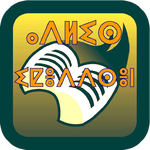



Are the Old and a New Testament two different books?
Many people think that Jews have one holy book and Christians another holy book!
Well that is not true!
Others say that Jews have two books called Tawrat (this word means 'thorah' that is the five books of Moses) and Zabur (this word means 'Psalms') and that Christians have a third book (which as it were by-passed the first two books) called the Gospel or Injil (this word means 'good news'). Those people may say that God has given even a fourth book which in its turn by-passes the Gospel or Injil.
Well that is not the case! God has given us only ONE book which consists of several collections of books, but they all together are God's infallible and unchanged Word!
The Old Testament consists of you three groups or collections of books called the Torah (=the five books of Moses), the Ketuvim (=a number of books among them Proverbs of Solomon and Psalms of David and the book of Job) and the Nevi'im (=the Prophets - a number of major and minor prophets who each have their name on the book). These were the Jewish Holy Scriptures and they were established as such already 400 years before the birth of Jesus Christ by the Holy Spirit through the virgin Mary.
Many Jews believed in Him and all apostles of Jesus were Jews who believed in Him. Already the first months after Jesus Christ was taken up to heaven, thousands in Jerusalem alone, came to faith in Him as the promised Messiah.
These Jewish believers were scattered after some time, due to fierce persecutions that were first of all instigated by the Jewish religious leadership at that time. One of them, Paul, was a leader of the persecutions Jewish christians, but he came to faith in Christ after an extraordinary appearance of Christ to him on his way to Damascus who summoned Paul to preach the gospel of Jesus Christ to all peoples and all nations.
This man Paul and the twelve apostles were all Jewish men who all believed in Christ as the promised Messiah of the Jewish people and who worked together to spread the news that Jesus Christ was the Messiah, the Anointed One from God to save His people. His people that is all those who believe in Jesus Christ from all tribes, peoples and nations (including those who believe in Jesus Christ from the Jewish people and all its tribes).
Some of the apostles and Paul (plus Paul's fellow worker, the doctor Luke, who possibly was a 'Greek') wrote additional books inspired by God's Holy Spirit to be added to the already existing three collections of books of the Jewish people that formed the Holy Scriptures of the Jews until that day.
The additional books consisted of the four Gospels of Jesus Christ, the book about the Acts of the Apostles, then a number of inspired letters written by the apostes to the churches of those days and to some fellow-workers and finally the book called Revelation written by the apostle John almost to the end of the first century, a report about a formidable revelation about things to come. These then form the fourth collection of books of the Jewish Holy Scriptures and is either called the Gospel or the New Testament.
At the end of this last book of the Bible, the book Revelation, we find these words:
"I warn everyone who hears the words of the prophecy of this book: If anyone adds anything to them, God will add to him the plagues described in this book. And if anyone takes words away from this book of prophecy, God will take away from him his share in the tree of life and in the holy city, which are described in this book.
He who testifies to these things says, “Yes, I am coming soon.”
Amen. Come, Lord Jesus.
The grace of the Lord Jesus be with God’s people. Amen". (Revelation 22:18-21)
These are the last words of what is called the BIBLE, which begins with three collections of Jewish books called Torah, Ketuvim and Nevi'im (which we use to refer to as 'the Old Testament') and which ends with the fourth Jewish collection of books called the Gospel (=Good News) of Jesus Christ, often also referred to as the New Testament.
So there is ONE BOOK of GOD, composed under the inspiration of Gods Holy Spirit by a variety of human contributors who were all Jewish (except possibly Luke) and which can be divided (but not broken) into the Old and New Testament.
